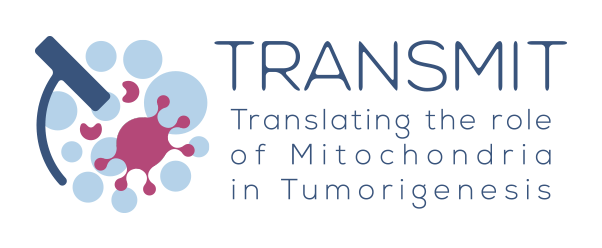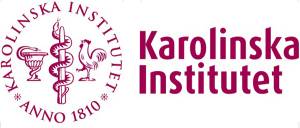Roles of mitochondrial biogenesis enzymes in regulation of chemoresistance (ESR 6)
Project Description
1) Job description: Within the training program provided by the TRANSMIT consortium, the candidate will have his/her training at the Karolinska Institutet, Sweden, and will be employed there as a Research Assistant, but will be enrolled as a PhD student in the 3-year PhD program in General Medical Sciences at the University of Bologna (UNIBO), Italy. UNIBO will thus provide the envisaged PhD degree.
The candidate will in a research lab environment design and carry out analyses of mitochondrial involvement and function in cancer-related clinical samples as well as in cultured cells in vitro, and relate the results to clinically and biologically relevant factors such as patient outcome data and mechanisms of chemoresistance. Lab work includes setting up routines for sample handling, cell cultures and performing cell-based assays. The candidate will also contact and interact with clinicians, pathologists, companies, biostatisticians etc. The tasks thus include thorough and rational planning, monitored by supervisor(s), accurate and neat hands-on work in the lab, and clear presentation of results. The program also includes courses and secondments with other members of the TRANSMIT network. As science and knowledge are based on communicable data and ideas, organizational as well as communication skills will be emphasized and further trained. The candidate will be required to spend a six-month period in Italy.
2) Job description: Ovarian cancer (OC) is the deadliest gynecological cancer, making it the fifth leading cause of cancer deaths in women. Even if treatment (surgery + platinum-based chemotherapy) is initially successful, many patients relapse within 6 months into disseminated disease; highly chemoresistant so-called cancer stem cells are believed to underlie this development. Risk factors include obesity and/or diabetes type 2 (DM2). Both have been associated with increased risk as well as poorer outcome and survival in OC. Risk and/or poorer outcome appear to involve altered levels of cyto- and adipokines secreted by obese adipose tissue. See review by Craig et al., Gyn Oncol 2016.
The candidate will examine: (a) molecular mechanisms of resistance to platinum chemotherapy in cultured OC cells, with focus on how mitochondria and cellular metabolism differ in resistant and sensitive cells, e.g., mitochondrial morphology and dynamics, and which metabolic pathways are involved in platinum resistance and/or cancer stem cell features; (b) the role(s) of regulators of mitochondrial biogenesis and function, e.g., the transcriptional co-regulator PGC1, in regulation of metabolism, chemoresistance and/or cancer stem cell features in OC, e.g., using in vitro knockdown of expression; (c) effects of selected cytokines and adipokines on mitochondria and chemoresistance in cultured OC cells, and correlation of cyto-/adipokine levels in patient samples with clinical data such as clinical resistance, survival time, BMI etc; (d) expression levels of PGC1 and presence of cancer-associated adipocytes in patient samples, and correlations with clinical data.
Lab methods include western blotting, ELISAs, PCR methods, cellular viability assays, metabolic assays (e.g., ATP measurements, oxygen consumption, lactate production) and metabolic marker profiling, confocal microscopy, knockdown methods, immunohistochemistry. Results are expected to be of publication quality.
Communication skills are practiced under supervision in the form of manuscript writing, poster presentations, student seminars and all other types of interaction with other professionals and students. Courses include Oncology and Tumor Biology comprising both clinical and preclinical knowledge, Biostatistics and 1-2 courses of the candidate´s choice in consultation with the supervisor.
The profile of the research environment of the Department of Oncology-Pathology at the Karolinska Institutet is translational, i.e., it supports the translation of preclinical research into clinically useful knowledge. The research group of Dr. Shoshan has a long-standing interest in cancer cell metabolism and tumor progression, and collaboration with clinicians, pathologist as well as biostatisticians. The Department will in the spring of 2018 move to new premises built to promote interaction between different research groups and interests.
Principal Investigator: Prof. Maria Shoshan
ESR 6: Nicole Bezuidenhout
Key personnel:



